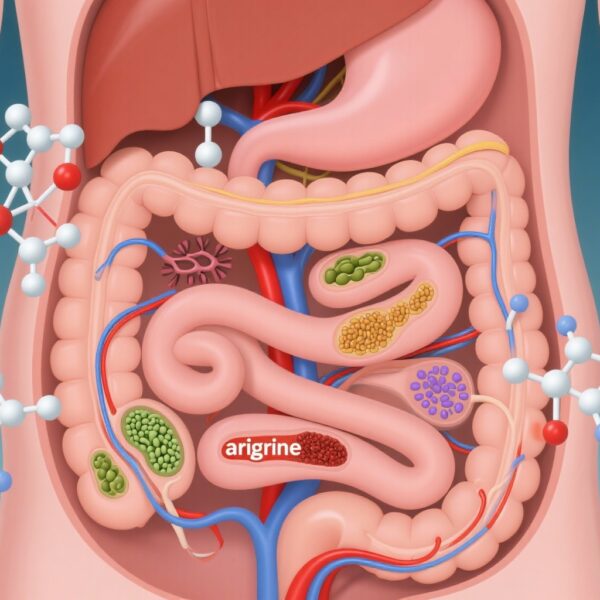Highlight
- Faecal microbiota transplantation (FMT) effectiveness for CDI varies significantly by donor, impacting patient cure rates.
- Empirical exclusion of low-performing donors improves single-dose FMT cure rates from 50% to 59% at external treatment sites.
- Implementation of a two-dose capsule FMT regimen increases cure rates to 72%, with statistically significant benefit after adjustment for confounders.
- Quality improvement approach demonstrates a scalable model to optimize FMT treatment outcomes for Clostridioides difficile infection.
Study Background
Clostridioides difficile infection (CDI) is a leading cause of antibiotic-associated diarrhea and healthcare-associated infections globally. It poses significant morbidity and mortality risks, especially in hospitalized and immunocompromised patients. Faecal microbiota transplantation (FMT) has emerged as an effective therapeutic option for recurrent or refractory CDI by restoring healthy intestinal microbiota. While FMT is endorsed in clinical guidelines, the variability in outcomes—particularly when using encapsulated FMT formulations—remains a challenge. Real-world data elucidating factors affecting FMT efficacy, including donor variability and dosing regimens, are critical for refining treatment strategies and improving patient outcomes.
Study Design
This multicenter quality improvement study was conducted across Danish institutions between June 24, 2019, and September 30, 2024. It included 1,176 patients with CDI who received a total of 1,707 encapsulated FMT treatments. The primary endpoint was clinical cure, defined as resolution of C. difficile-associated diarrhea (CDAD) eight weeks post-FMT treatment.
The study tracked clinical outcomes using statistical process control charts, analyzed separately for the primary FMT center and for external FMT sites. Multivariable mixed-effect logistic regression models were employed to adjust for patient demographics, donor characteristics, CDI-related factors, and dosing regimen changes. Key interventions evaluated included empirical exclusion of donors with poor clinical performance and implementation of a two-dose capsule FMT regimen.
Key Findings
Initially, single-dose capsule FMT treatments at external sites yielded a 50% cure rate (95% confidence interval [CI], 45%-56%). Based on interim outcome monitoring, three donors identified as consistently low performing were excluded starting November 2022, resulting in an increased cure rate of 59% (95% CI, 55%-63%).
In February 2024, the dosing protocol was updated to a two-dose capsule regimen. Subsequent analysis demonstrated a further rise in cure rate to 72% (95% CI, 65%-77%) at the external sites. The logistic regression adjusted odds ratio for the two-dose regimen was 1.22 (95% CI, 1.16-1.28), indicating a significant independent association with improved clinical cure (p < 0.001).
These improvements were consistent across patient subgroups and robust to adjustment for confounding variables such as patient age, CDI severity, prior treatments, and donor characteristics. No new safety signals related to increased dosing frequency were reported.
Expert Commentary
This high-quality, large-scale quality improvement study provides compelling evidence that both donor selection and dosing strategy substantially influence the effectiveness of capsule-based FMT for CDI. The observed donor effect aligns with emerging evidence that the microbiota composition and functional attributes of donors can modulate treatment response.
By implementing empirical donor exclusion based on performance data, clinicians can enhance cure rates without compromising access to FMT. Moreover, the two-dose capsule regimen offers a practical, patient-friendly means to boost efficacy, potentially by increasing the microbial inoculum and sustained colonization.
Nevertheless, some limitations should be acknowledged. The study design, while pragmatic, did not employ randomized allocation to dosing regimens or donors, which may introduce residual confounding despite multivariable adjustment. Also, the generalizability of findings beyond Danish clinical settings requires confirmation.
Mechanistically, the benefit of repeated dosing may reflect enhanced engraftment and resilience of beneficial microbial communities, a topic warranting further microbiome-focused investigations. Future studies might also explore donor microbiome profiling to predict donor suitability and personalized dosing algorithms.
Conclusion
This large Danish quality improvement initiative demonstrates that optimizing encapsulated FMT for CDI through strategic donor selection and empirically optimized dosing markedly improves patient outcomes. The transition from a single-dose to a two-dose capsule regimen increased cure rates by more than 20% relative to the baseline rate following donor exclusion.
These findings underscore the critical role of donor quality monitoring and dosing optimization in FMT protocols, providing a scalable model for clinical practice enhancement. As CDI remains a challenging infection with considerable healthcare burden, such advances in microbiome therapeutics are timely and impactful.
Future research should focus on mechanistic insights into donor and dose effects, standardization of donor screening, and long-term efficacy and safety assessments to refine and personalize FMT approaches further.
References
Paaske SE, Baunwall SMD, Rubak T, Rågård N, Kelsen J, Hansen MM, Lødrup AB, Lyhne S, Glavind E, Fernis CMC, Hald S, Erikstrup LT, Vinter-Jensen L, Lal S, Mikkelsen S, Erikstrup C, Dahlerup JF, Hvas CL. Improving Clinical Outcomes of Encapsulated Faecal Microbiota Transplantation for Clostridioides difficile Infection Through Empirical Donor Selection and Optimised Dosing: A Quality Improvement Study. Aliment Pharmacol Ther. 2025 Oct 6. doi: 10.1111/apt.70395. Epub ahead of print. PMID: 41047993.
Additional supporting literature:
1. Lee CH, Steiner T, Petrof EO, et al. Frozen vs Fresh Fecal Microbiota Transplantation and Clinical Resolution of Diarrhea in Patients With Recurrent Clostridium difficile Infection: A Randomized Clinical Trial. JAMA. 2016;315(2):142-149.
2. Kao D, Roach B, Silva M, et al. Effect of Oral Capsule– vs Colonoscopy-Delivered Fecal Microbiota Transplantation on Recurrent Clostridium difficile Infection: A Randomized Clinical Trial. JAMA. 2017;318(20):1985-1993.
3. Paramsothy S, Nielsen S, Kamm MA, et al. Specific Bacteria and Metabolites Associated With Response to Fecal Microbiota Transplantation in Ulcerative Colitis. Gastroenterology. 2019;156(5):1440-1454.
4. Ianiro G, Bibbò S, Sciumè GD, Gasbarrini A, Cammarota G. Ecosystem resilience and health: the role of gut microbiota. Microb Biotechnol. 2019;12(1):28-39.


